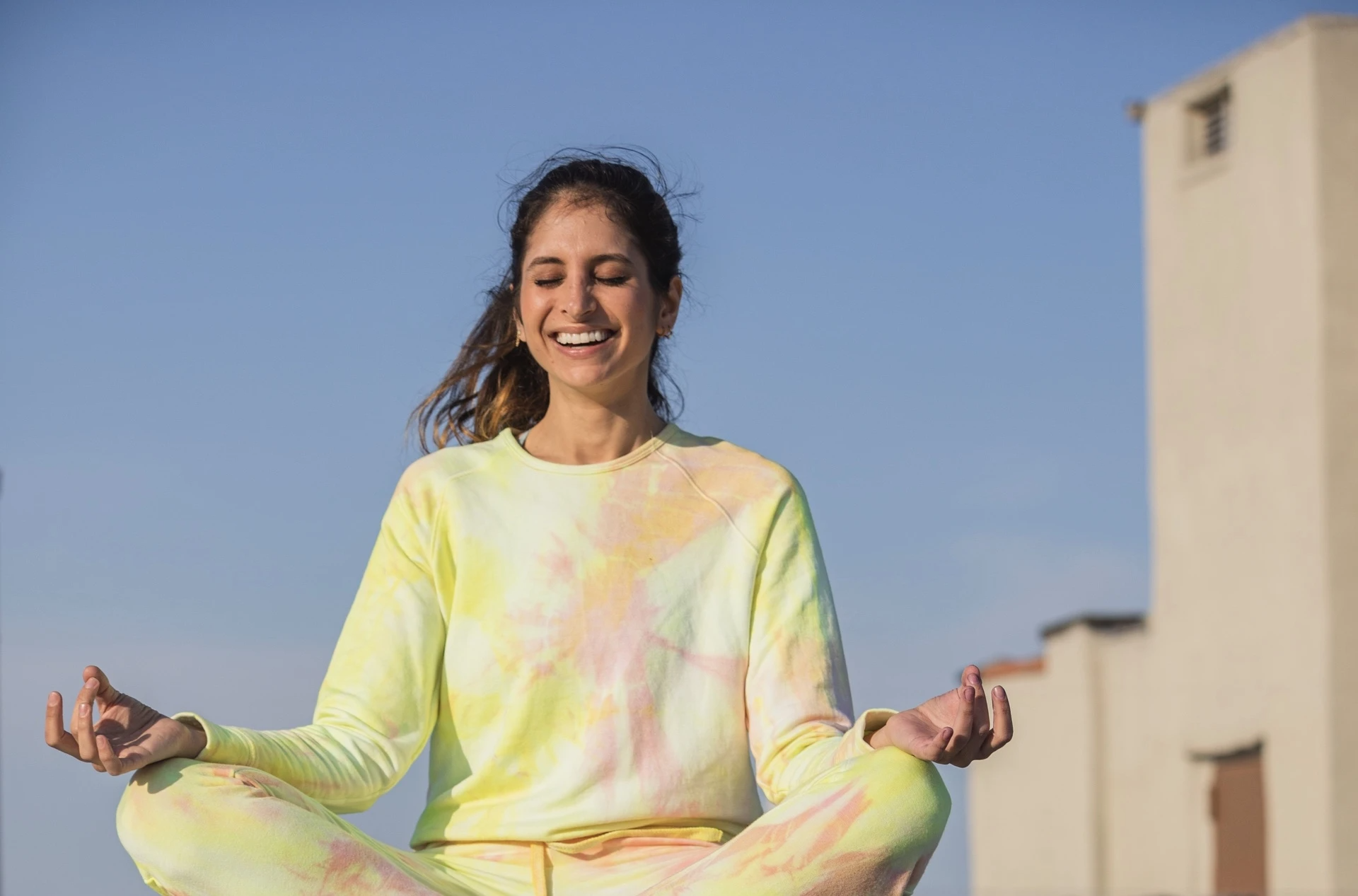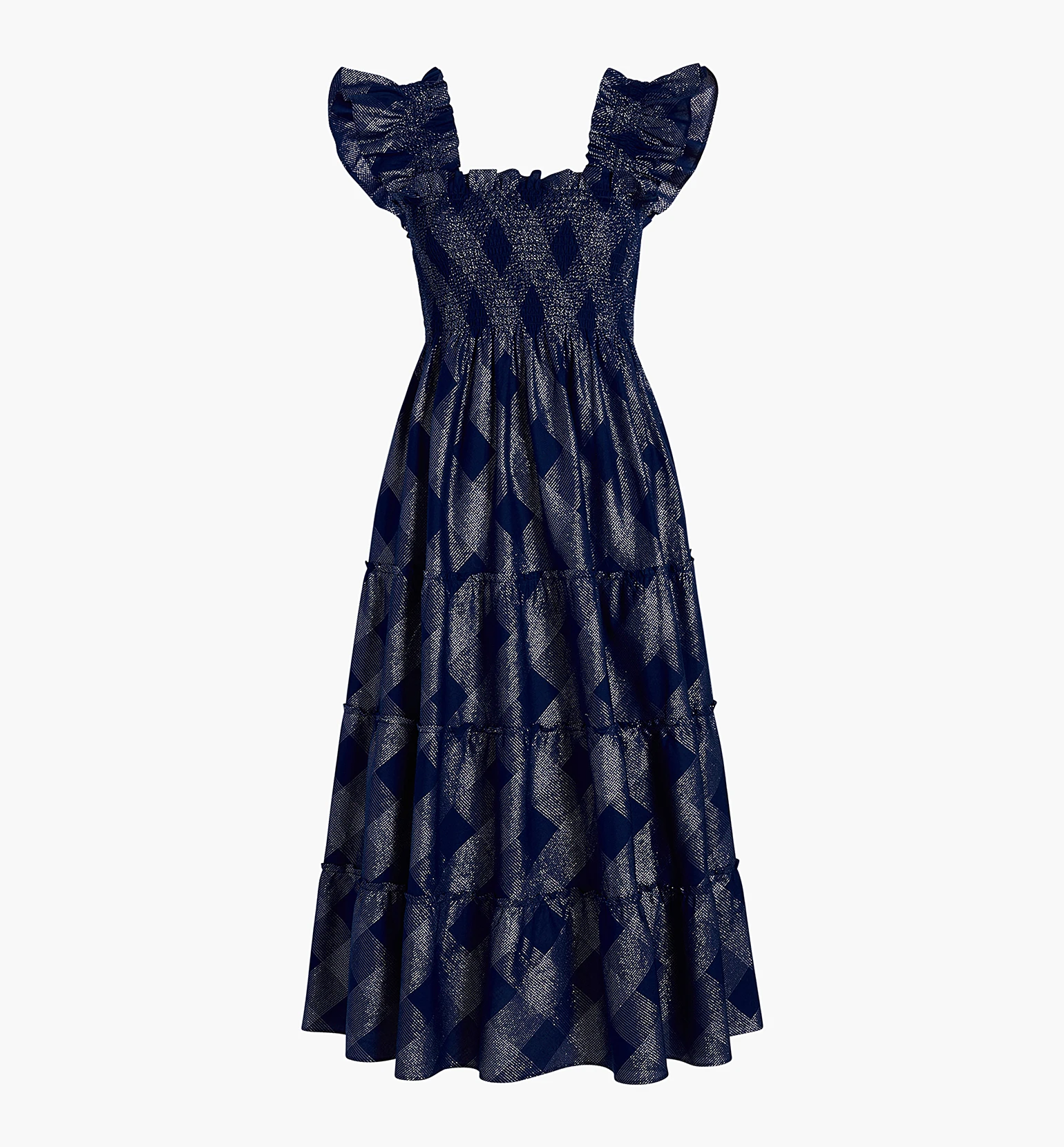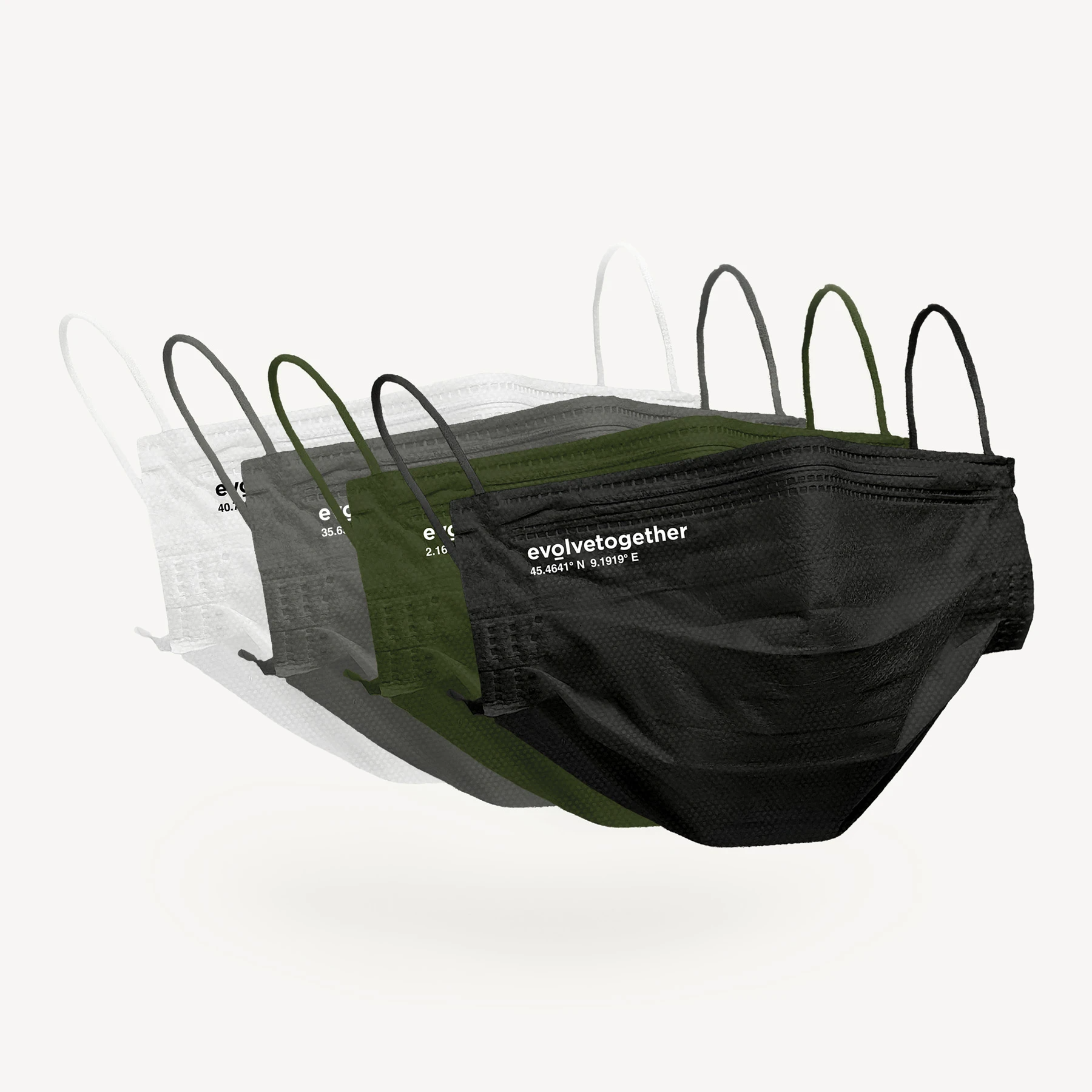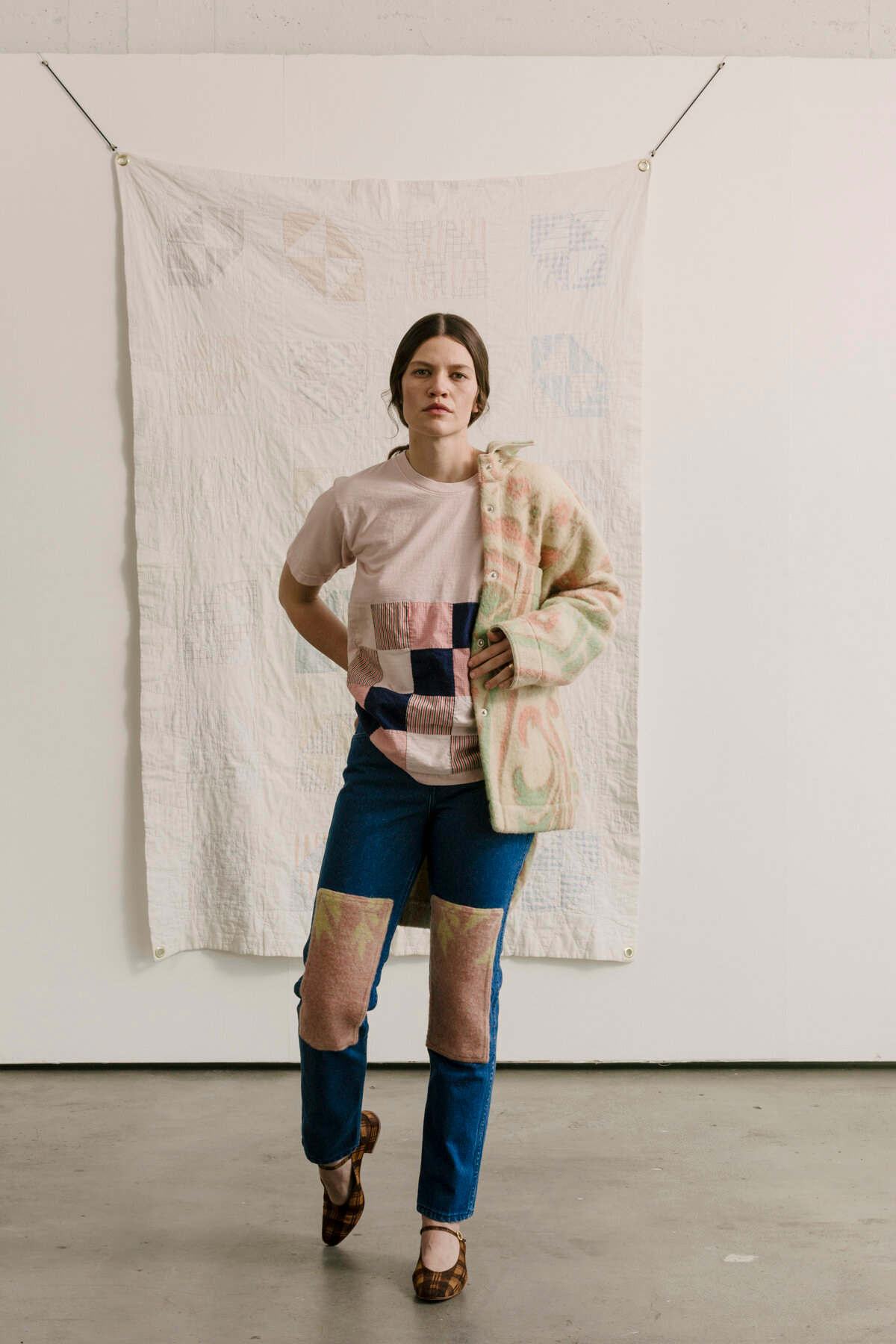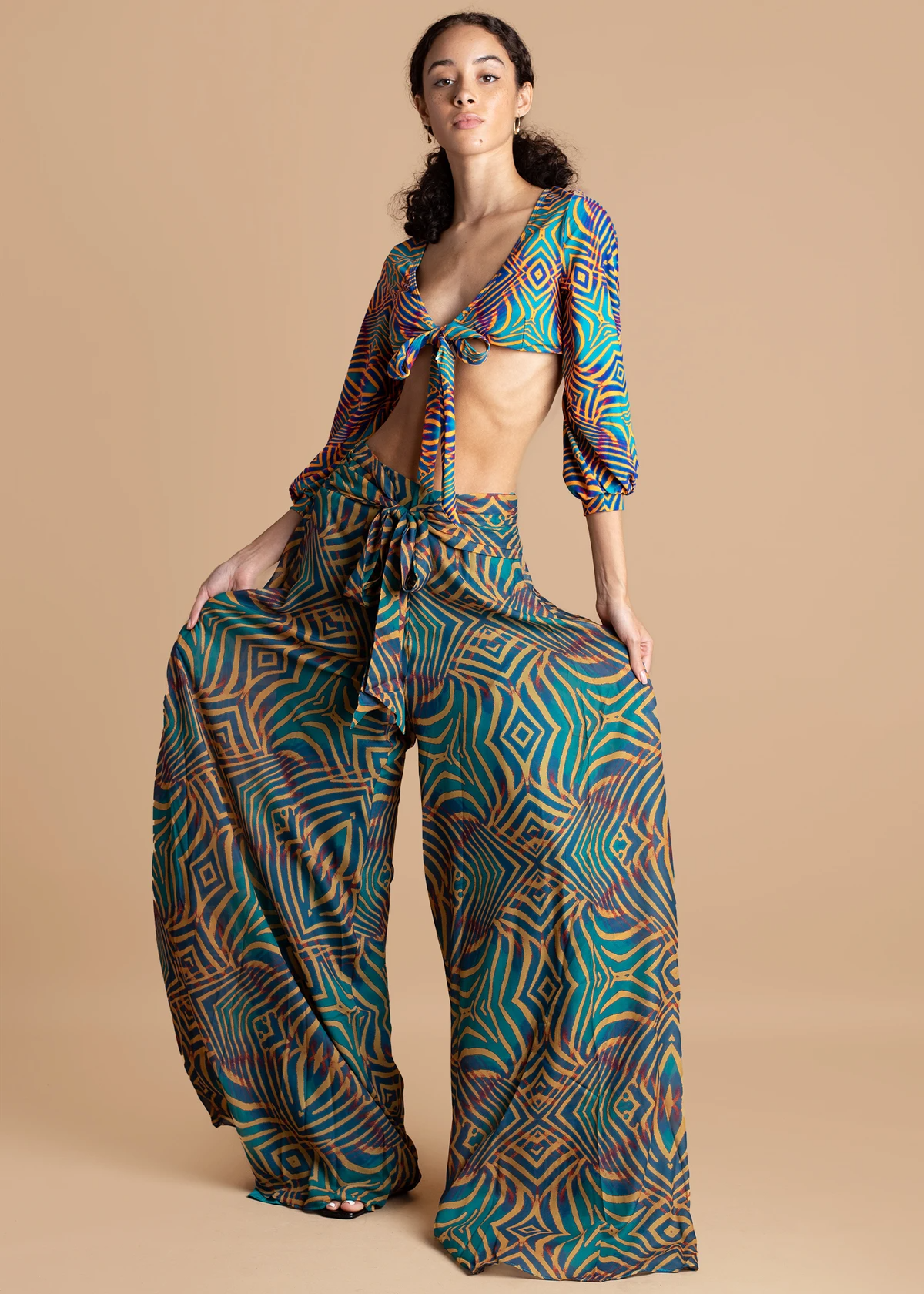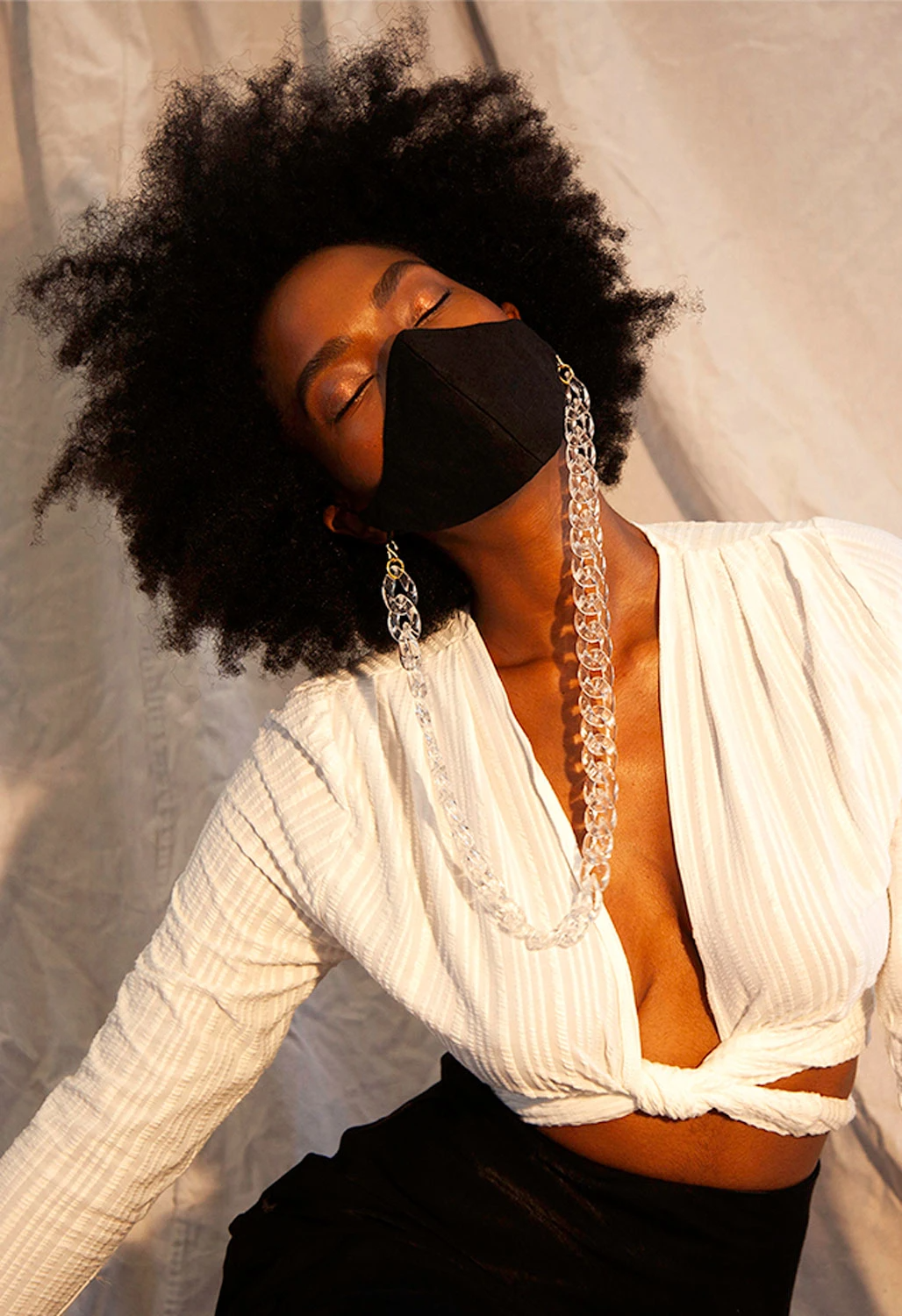How The Nap Dress, Masks & Tie-Dye Helped These Fashion Brands Thrive In The Pandemic
Photo: Stephen Tayo/courtesy of The Folklore x Farfetch.
“When the pandemic hit, my first thought was, I’m in trouble. I had $250,000 worth of inventory that nobody wanted,” says Sabrina Zohar, the founder of softwear, a Brooklyn-based brand of sustainable loungewear. “I had a genuine fear that we were going to close our doors and liquidate.” She was hardly the only fashion business thinking that. When COVID-19 took hold and ushered everyone indoors, the future of fashion looked bleak. Like softwear, many brands were left with products that no one was buying, with consumers uncertain about what’s next; stores were canceling orders from brands; and even beloved labels and stores began shutting doors. Months later, the industry is still recovering from the fallout, with many hoping to make enough to cover expenses — forget about turning a profit — this year. Yet through ingenuity and strategic style pivots, some fashion brands have found success despite it all.
AdvertisementADVERTISEMENT
“My mother always says, ‘Necessity is the mother of invention.’ I had no choice but to adapt to our new reality. At the beginning of March, tie-dye began to make an appearance again, and I was sitting on a lot of inventory, white joggers specifically,” says Zohar. She began to tie-dye them, producing custom made-to-order pieces. “Instead of creating pieces that I wasn’t sure if anyone would like or even want, I decided it was best to create something that would be so unique to each specific client, something that they would genuinely love.” Not too long after, softwear made about $150,000 in tie-dye alone, according to Zohar. “It was the rainbow to our stormy cloud,” she adds.
Vita Fede jewelry designer Cynthia Sakai didn’t just launch a new product while adapting to the pandemic — she launched an entirely new business. “I saw a real need for people to have access to affordable, easy-to-wear, and stylish masks that actually worked,” Sakai says. Enter: evolvetogether, a brand of FDA-registered, single-use medical masks with a sleek, minimal look and a matte, cloth-like finish.
And while a medical face mask business was organically set up for success during a time when PPE was scarce, the extent of evolvetogether’s exposure came as a surprise even to Sakai herself. Celebrities — ranging from Katie Holmes and Hailey Bieber to Jennifer Lopez, Ariana Grande, and Vanessa Hudgens — were wearing the styles, and a 40,000-person waitlist followed. “The fact that people actually liked wearing our masks and felt confident knowing our masks were SGS-tested and proven to do what they say they did is what has driven much of our growth,” Sakai says. “I never imagined I’d be making masks in the first place, let alone waitlisted ones celebrities would wear.”
AdvertisementADVERTISEMENT
Fashion stylist Karen Perez, likewise, didn’t envision making face masks prior to 2020. But when clients came to her “with requests on finding them high-end, chic masks,” she saw a need to create one that would make a statement. “I decided to design my own. I wanted to create a mask that was feminine, chic,” she says. “The chains added a nice touch.” While Second Wind’s face masks were unique enough for their linen material (the brand has since launched styles in silk as well), custom fit (something that is still rare), and general style factor, it was indeed the chains that came attached with them that were still a novelty at the point of the pandemic and separated them from other brands making cloth masks. During the first pre-sale in July, Second Wind sold over 10,000 units in 24 hours.
“It was so overwhelming that I had to shut down the web store the next morning,” says Perez. “We were a made-to-order business, and this wasn’t anything I was ready for and expected.” The second drop sold out in 10 minutes. (Second Wind also made headlines when WeWoreWhat’s Danielle Bernstein was accused of copying the face mask design; she denied the allegations.)
While all three of these businesses responded to the consumers’ new demands, Hill House Home was already poised for success — though it did not know just how much prior to this year. While the home brand’s Nap Dress, a flowy frock with a smocked bodice, was released in 2019 and the name’s trademark filed in January 2020, it was when spring's stay-at-home orders first started that the dress became inescapable on social media and crowned the fashion item of 2020.
AdvertisementADVERTISEMENT
When deciding to launch the dress — which Hill House Home founder Nell Diamond had “been thinking about for many years” prior to last year — she wasn’t sure it would take off with the brand’s customer. “I did wonder if it was a ‘Nell Thing’ — something only I cared about. When we launched our first Nap Dress collection, though, we realized pretty quickly that the combination of comfort, style, and price really worked,” says Diamond.
According to her, the Nap Dress currently makes up 50% of the brand’s business, and each new launch — it’s now available in six silhouette styles and a variety of colors — generates the best sales day and week for the brand at that point in time; during the October drop, Hill House Home sold one million dollars of inventory in 30 minutes. “I think versatility is key,” Diamond says of its success. “The Nap Dress can be worn inside or outside. You can go from bed, to a meeting, to errands, to dinner, all without changing out of your Nap Dress.” At a time when our bedrooms and dining rooms double as work offices, this is not only appealing but also frankly convenient.
The Folklore, an online boutique that carries pieces by designers from Africa and the diaspora, too, didn’t know the success that 2020 would bring. According to its founder Amira Rasool, in March, sales slowed down to the point of her considering getting another job to keep the business above water if things didn’t improve. “I'm a go-getter, I'm someone who always perseveres over things,” Rasool says, though she wondered, “What was I going to have to sacrifice?” After cutting everything that was “not super urgent,” Rasool significantly reduced her monthly overhead costs.
AdvertisementADVERTISEMENT
In response to the death of George Floyd and the protests that followed in June, many news outlets and websites expressed their support for the Black Lives Matter movement and ran lists of Black-owned businesses to support (Refinery29 did as well). The Folklore was prominently featured, which, according to Rasool, led to an increase in sales. “I never thought me being Black would actually be something that benefitted me. As Black people, we're always so used to Black being the thing that disqualifies us from so many things — from feeling safe in our homes, from getting the job — but with so many people having this awakening after watching that George Floyd video, it was overwhelming the amount of support,” Rasool says. “I remember saying to myself, Is this how white people feel when they launch things? Because I've never had so many people reach out to me, offer resources, post about me like this.”
But more than just being Black-owned, The Folklore was founded in 2018 with a mission to support other Black creatives. “It's not just me being Black, but what my company represents. The Folklore was designed to help other Black people and people from Africa,” she explains. “We already had the connections with these Black designers that these retailers are now pledging to stock. A lot of people were scrambling to find the leaders in the fashion industry who have consistently been working with Black-owned businesses, who specifically have been working to empower Black designers.”
AdvertisementADVERTISEMENT
“
I remember saying to myself, Is this how white people feel when they launch things? Because I've never had so many people reach out to me, offer resources, post about me like this.
Amira Rasool, the folklore founder
”
With that in mind, the retailer’s most buzz-worthy moment came last month when it announced an ongoing partnership with retailer giant Farfetch to showcase some of the fashion brands carried on The Folklore. But while the fact that The Folklore has consistently been promoting these brands can be attributed to the partnership between the two fashion forces, once again, it was Rasool’s perseverance that landed her this opportunity. While attending Farfetch’s fashion and retail tech accelerator Dream Assembly, Rasool says she raised her hand during a talk given by Farfetch North America President Jeffery Fowler. “I asked, ‘What are you doing to include more Black and African designers on your website? And how can my company, The Folklore, help?’” she recalls. “It all went from there.”
While the beginning of the pandemic saw a lull in clothing shopping due to consumers having nowhere to wear it and the future uncertain, there has, more recently, been a shift in what consumers are buying. Having witnessed the waste that fashion overproduction creates, many have vowed to shop less fast fashion and invest in quality, special items that will last for years rather than a single season. Kelsy Parkhouse, the founder of women’s clothing brand Carleen, has witnessed this mindset shift firsthand. While sales in spring looked “bleak,” according to her, the orders in August and onward not only made up for the losses earlier in the year but are also outpacing Carleen’s 2019 numbers.
“The one-of-a-kind pieces are doing really well. I think people are just really excited about having that kind of special emotional connection to the garment,” she says. “We can't see our friends as much. We can't go places as much, and you're not going to get that emotional hit that you get from my garment; you're not going to get that from buying something from a mass retailer. You're going to get that from shopping from the designer or shopping from a local store that knows all the designers they work with.”
AdvertisementADVERTISEMENT
While she credits Carleen’s promising sales to her connection with her clients — “I had an interaction with a customer on Instagram recently who described the jacket she got from me as being a lifelong warm, cozy hug” — she also points to quilt outerwear, the brand’s specialty, being a big fashion trend right now. “I think it's very possible that Carleen might have had this moment and this upswing if our world was a little more normal as well, because this something we've been building towards for quite a while,” Parkhouse muses. “But I certainly can't say that for sure.”
“
Brands will need to be very clear about how their products fulfill both emotional and functional needs in order to stay relevant and successful.
Cynthia Sakai, evolvetogether founder
”
No one is sure about what the future of fashion holds, and what can guarantee a fashion business’ success going into 2021. All the brands Refinery29 spoke to said that businesses should continue to stay true to the core of the brand’s vision and zero on why they were started in the first place. “Beyond navigating the immediate financial issues facing so many businesses, the fashion industry will also need to navigate a new post-pandemic consumer. I think a lot of consumers have had a shift in perspective — we’ve realized we can get by with less and have become more selective on what we spend money on,” says Sakai. “A social media moment isn’t going to cut it. I think brands will need to be very clear about how their products fulfill both emotional and functional needs in order to stay relevant and successful.” She personally is planning on expanding evolvetogether’s offerings to include more “thoughtfully designed daily essentials” as the need for masks will likely dwindle in the coming years.
AdvertisementADVERTISEMENT
Zohar also encourages brands to listen to their customers right now, having herself found it essential when interacting with many when creating Softwear’s custom tie-dye pieces. “Throughout this process, I realized that the more your customer feels like they have a voice and the more they feel they're laying a brick down with you, the stronger your relationship will be with them,” she says. “Be sure to put customer service above all else.”
While The Folklore has had a strong year, Rasool emphasizes that it’s already a win if a brand is able to make it. “My advice is just figuring out ways to not close your business. I'm not saying figure out ways to increase your sales by two weeks, all of that. For a lot of industries, that's not realistic right now… Just survive and stay mentally, physically, and emotionally and economically as prosperous as you can,” she says. “Weather this storm and come back stronger.”
At Refinery29, we’re here to help you navigate this overwhelming world of stuff. All of our market picks are independently selected and curated by the editorial team. If you buy something we link to on our site, Refinery29 may earn commission.
AdvertisementADVERTISEMENT







